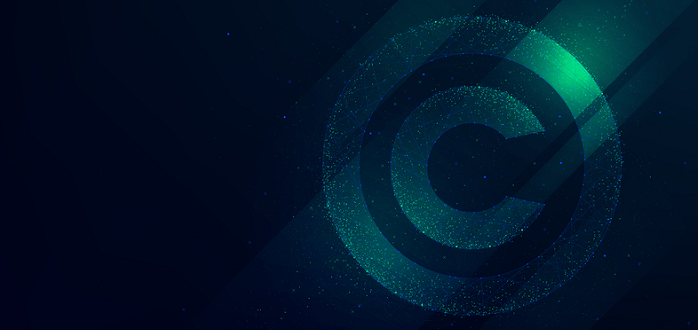An April 2019 report published by the Iqvia Institute for Human Data Science suggests that in 2018, smaller life science companies were more likely than their bigger siblings to discover promising new therapeutic approaches to treat various diseases and conditions. In fact, these so-called ‘emerging companies’—those spending less than $200 million a year on R&D—held patents on 38 of the 59 therapies approved in 2018, and were directly responsible for bringing almost half of those 59 approved drugs to market.
At a practical level, these emerging companies are running very lean, with little or no budget for expenses outside of discovering and patenting their compounds. Rather than commit scarce funds to people, processes, buildings, equipment, and other capital-intensive investment, many small companies find it more effective to outsource these operations. However, one area that often gets overlooked in the outsourcing process is how to manage copyright compliance and the associated risks of non-compliance.
Ignoring Copyright is Risky Business
Research in the life sciences depends in part on the ability to acquire and share scientific information, particularly journal articles, in a timely manner. However, many companies are unaware that much of the published scientific literature is protected by copyright law (with the rights typically held by the publisher or the author of the article), which governs how the information can be used and shared. This is an especially important concern for smaller companies, because Outsell data suggest that they are more likely to share information outside of their organization than medium to larger companies.
Generally, when an article is purchased for download, it is intended only for the use of the individual user who purchased it. The organization must then obtain additional copyright permissions from the copyright holder if it intends to share copies with additional users, such as colleagues, external collaborators or partners, regulatory agencies, or customers. While smaller companies without a librarian or information specialist onboard may be unaware of their obligations under copyright law, their lack of knowledge won’t help them. The copyright holder still has the right to enforce its rights through an infringement claim if uses are made without the appropriate permissions having been secured.
Other noncompliance issues arise regarding how employees access materials. In some smaller companies, researchers may use their academic credentials to download scientific articles and share them with colleagues. This likely violates the terms of the academic library subscription licenses, which would typically exclude the use of licensed materials for any non-academic use. In companies where there is no information gatekeeper, researchers may turn to downloading articles from sites such as Sci-Hub and ResearchGate, which are promoted as ‘free’ sources for scientific information. In fact, ResearchGate has been involved in lawsuits in both Europe and the US, with publishers alleging that the networking site is illegally obtaining and distributing research papers protected by copyright law. Sci-Hub has been sued twice for copyright infringement and lost both cases.
Other copyright infringements are less obvious, and often involve electronic media. For example, depending on the nature and purpose of your use, you can unknowingly infringe someone’s copyright rights by embedding a YouTube video into your PowerPoint presentation, posting a commercial podcast on your company’s Intranet, or copying and pasting a blog post from a LinkedIn listing to your own blog. In each of these cases, you should consider whether to acquire permission from the copyright holder.
Why does it matter, and what can you do?
Sharing content unlawfully undermines the culture of integrity that is valued by research organizations. It’s an unethical way to do business, and efforts to curtail copyright infringement should be included in overall compliance activities and subject to similar types of safeguards to those that govern manufacturing, financial data, or research archives.
While internal resources are usually limited in smaller companies, there are several ways to outsource copyright compliance efforts. You can sign individual subscription license agreements with individual publishers that will provide certain usage rights on a journal- or collection-specific basis. Other companies seek a broader solution by taking a repertory copyright license from a reproduction rights organization, such as Copyright Clearance Center (US), the Copyright Licensing Association (UK), or Access Copyright (Canada), which manage the licensing of secondary uses (such as storing and sharing copies for occasional use by colleagues, submitting copies to regulatory authorities, etc.) of books, journals, newspapers, and magazines on behalf of publishers, both within the relevant country or territory, and in some cases on a global basis. To help ensure that your teams access content in an efficient and compliant manner, you can subscribe to various online journals, or license an online library solution that will deliver articles and book chapters electronically and enable users to check the uses for which you already have copyright permissions.
Copyright issues are becoming more prominent as digital technologies have made it easier to distribute information to wide groups of people at once. That’s why it is more important than ever to be aware that anytime you share content—by email, or instant message, or blog post, or a slide deck—without checking that you have the necessary rights to do so, you are placing your company at financial, legal and reputational risk.
Keep Learning:
- Information Overload? Not Necessarily the Case for Emerging Life Science Companies
- Considerations for Using Open Access Content at Work
- Understanding “The Rules” of Content and Information Sharing in a Global Organization
As companies grow, their information needs grow, as well. CCC recognizes the difficulty in balancing current needs with future growth and is committed to providing smaller life science companies with a sustainable work flow solution to address information “underload” and copyright compliance challenges that grows with the company. Learn more about RightFind Enterprise and see real examples of how it’s used.


